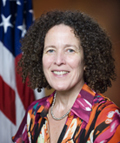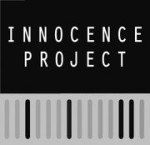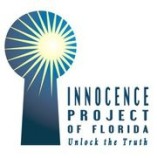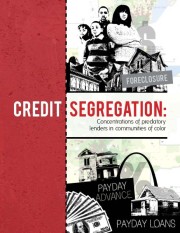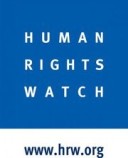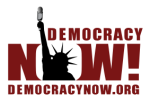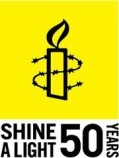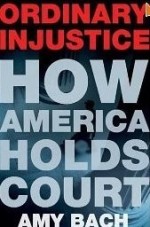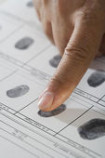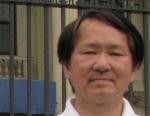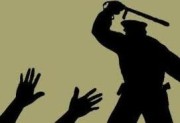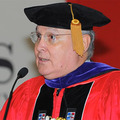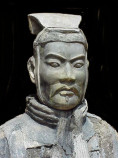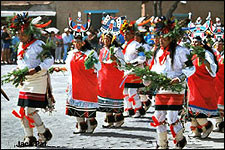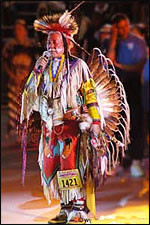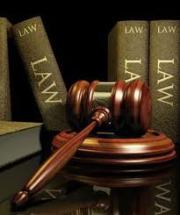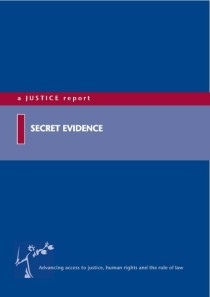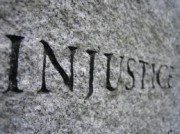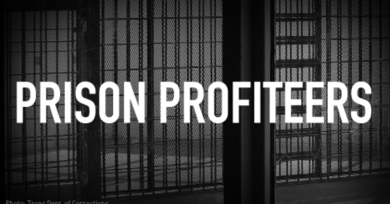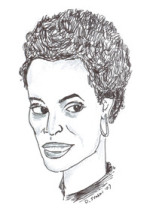Justice Projects
Racketeer Influenced and Corrupt Organizations Act
RICO Wikipedia
The Racketeer Influenced and Corrupt Organizations Act, commonly referred to as the RICO Act or simply RICO, is a United States federal law that provides for extended criminal penalties and a civil cause of action for acts performed as part of an ongoing criminal organization. The RICO Act focuses specifically on racketeering, and it allows the leaders of a syndicate to be tried for the crimes which they ordered others to do or assisted them, closing a perceived loophole that allowed a person who instructed someone else to, for example, murder, to be exempt from the trial because he did not actually commit the crime personally.[1]
RICO was enacted by section 901(a) of the Organized Crime Control Act of 1970 (Pub.L. 91–452, 84 Stat. 922, enacted October 15, 1970), and is codified at 18 U.S.C. ch. 96 as 18 U.S.C. §§ 1961–1968. G. Robert Blakey, an adviser to the United States Senate Government Operations Committee, drafted the law under the close supervision of the committee's chairman, Senator John Little McClellan. It was enacted as Title IX of the Organized Crime Control Act of 1970, and signed into law by Richard M. Nixon. While its original use in the 1970s was to prosecute the Mafia as well as others who were actively engaged in organized crime, its later application has been more widespread. Read more
DOJ/US Attorneys 9-110.000 - Organized Crime And Racketeering
DOJ/US Attorneys 109. RICO Charges
18 U.S.C. Chapter 96 - RACKETEER INFLUENCED AND CORRUPT ORGANIZATIONS Legal Information Institute, Cornell Law School
Jeffrey E. Grell, Attorney at Law
The purpose of this website is to serve as a resource for attorneys, clients, the media, and any member of the public with an interest in the Racketeer Influenced and Corrupt Organizations (RICO) Act, Title 18, United States Code, Sections 1961-1968...
Jeff practices with the law firm of Grell & Feist LLC (www.grellfeist.com). Please call 612-259-8314.
For a general overview of RICO, visit our Nutshell section. Decisions of United States Supreme Court or the Circuit Courts of Appeal cited in the Nutshell are also linked to the full-text opinions.
Helpful information may be found in the FAQ section and the VLOG.
Jeffrey E. Grell is the author of Grell on RICO, which Jeff developed for use in teaching his class at the University of Minnesota.
For pro se litigants:
The practice of law is a business. Very few RICO cases are appropriate for handling on a contingency fee basis. If you are a pro se litigant and know that your claim does not present a realistic chance of economic recovery (or know that your defendant has no assets), please visit one of the non-profit organizations listed on the sidebar. Otherwise, feel free to send an email. Please be mindful that I will not likely be able to offer any advice or direction regarding the particular facts of your case. GRELL ON RICO is also available for purchase. Click here to buy the book.
Bea Hanson, Principal Deputy Director, U.S. Department of Justice Office on Violence Against Women (OVW)
Office on Violence Against Women
145 N St., NE, Suite 10W.121
Washington, D.C. 20530
202-307-6026
Fax: 202-305-2589
Email: ovw.info@usdoj.gov
Bea Hanson is the Principal Deputy Director of the United States Department of Justice Office on Violence Against Women (OVW). In her role, she serves as the liaison between the Department of Justice and federal, state, tribal, and international governments on matters involving violence against women. She is responsible for developing the Department's legal and policy positions regarding the implementation of the Violence Against Women Act and overseeing an annual budget of nearly $400 million. Read more
The Innocence Project is a national litigation and public policy organization dedicated to exonerating wrongfully convicted individuals through DNA testing and reforming the criminal justice system. Read more The Innocence Project was founded in 1992 by Barry C. Scheck and Peter J. Neufeld at the Benjamin N. Cardozo School of Law at Yeshiva University to assist prisoners who could be proven innocent through DNA testing. To date, 271 people in the United States have been exonerated by DNA testing, including 17 who served time on death row. These people served an average of 13 years in prison before exoneration and release. Read more Innocence Project Wikipedia
The Innocence Project of Florida (IPF) began in January of 2003 in response to an October 1, 2003, filing deadline for post-conviction DNA motions. Beginning with two advocates (Jennifer Greenberg and Sheila Meehan) working out of a hallway at the FSU College of Law, IPF has been screening, investigating, placing and litigating innocence cases ever since. We have to date received thousands of inquiries and/or requests for assistance. Read more
is a private, non-partisan, non-profit organization dedicated to promoting the public's constitutional right to oversee its government through Florida's Sunshine and Public Records Law. Acting as the public's advocate, the Foundation provides a variety of services to citizens, government officials, and the media. Read more
NATIONAL PEOPLE’S ACTION
810 North Milwaukee Avenue
Chicago, IL 60642
National People's Action (NPA) is a Network of community power organizations from across the country that work to advance a national economic and racial justice agenda. NPA has over 200 organizers working to unite everyday people in cities, towns, and rural communities throughout the United States.
Credit Segregation Report, February 2011
Credit Segregation Report, February 2011
NATIONAL PEOPLE’S ACTION
Three years into the massive financial crisis, the economic fallout has clearly not impacted all areas of the nation equally. As this report documents, sharp racial
divides exist in terms of the prevalence of mainstream, wealthbuilding credit and the availability of high-priced, subprime loan products such as "payday" loans. This report examines the recent
availability of consumer credit in African-American and Latino communities in five major Midwestern metropolitan areas: Chicago, IL, Detroit, MI, Kansas City, MO-KS, Peoria, IL, and St. Louis MO-IL.
This report focuses on two consumer loan products at the opposite ends of the credit spectrum: home mortgage refinance loans and cash advance or payday loans.
Together the disparate availability of these products paints a disturbing picture of consumer credit conditions in the areas where most African-Americans and Latinos live during this third year of
financial crisis. Read more
National People’s Action
credit-segregation-npa-report-feb-2011.p[...]
Adobe Acrobat document [2.8 MB]
Human Rights Watch is one of the world’s leading independent organizations dedicated to defending and protecting human rights. By focusing international attention where human rights are violated, we give voice to the oppressed and hold oppressors accountable for their crimes. Our rigorous, objective investigations and strategic, targeted advocacy build intense pressure for action and raise the cost of human rights abuse. For 30 years, Human Rights Watch has worked tenaciously to lay the legal and moral groundwork for deep-rooted change and has fought to bring greater justice and security to people around the world.
Human Rights Watch Wikipedia
Mission Statement: Human Rights Watch is dedicated to protecting the human rights of people around the world. We stand with victims and activists to prevent discrimination, to uphold political freedom, to protect people from inhumane conduct in wartime, and to bring offenders to justice. We investigate and expose human rights violations and hold abusers accountable. We challenge governments and those who hold power to end abusive practices and respect international human rights law. We enlist the public and the international community to support the cause of human rights for all. Read more
Report: Debtor Prisons on the Rise
Amy Goodman and Democracy Now
Report: Debtor Prisons on the Rise
New reports by the ACLU and the Brennan Center for Justice have found a
sharp rise in debtor prisons across the country. Poor defendants are being jailed for failing to pay legal debts. In Ohio, a man named Howard Webb, who earns $7 an hour as a dishwasher, has served
two stints in jail totaling over 300 days for being unable to pay nearly $3,000 in fines and costs from various criminal and traffic cases. In Michigan, a twenty-five-year-old single mother named
Kawana Young has been jailed five times for being unable to afford to pay a few minor traffic tickets. Eric Balaban of the ACLU said, "Incarcerating people simply because they cannot afford to pay
their legal debts is not only unconstitutional but also has a devastating impact upon men and women, whose only crime is that they are poor."
Amnesty International is a global movement of more than 3 million supporters, members and activists in more than
150 countries and territories who campaign to end grave abuses of human rights.
Our vision is for every person to enjoy all the rights enshrined in the Universal Declaration of Human Rights and other international human rights
standards.
We are independent of any government, political ideology, economic interest or religion and are funded mainly by our membership and public donations. Read more
Amnesty International Wikipedia
Is an archive of articles and book excerpts that seek to tell the truth about American democracy, media, and foreign policy, and about the impact of the actions of the
United States government, transnational corporations, global trade and financial institutions, and the corporate media, on democracy, social and economic justice, human rights, and war and peace, in
the Third World, and in the developed world.
THIRD WORLD TRAVELER also provides information and links to aid international
travelers.
Amy Bach, a member of the New York bar, has written on law for The Nation, The American Lawyer, and New York magazine, among other publications. For her work in progress on Ordinary Injustice, Bach received a Soros Media Fellowship, a special J. Anthony Lukas citation, and a Radcliffe Fellowship. She was a Knight Foundation Journalism Fellow at Yale Law School. And she is a graduate of Stanford Law School. She lives in Rochester, New York, where she has taught legal studies at the University of Rochester. Read more
"The very people who have helped perpetrate ordinary injustice met with me repeatedly, for countless hours to talk about their roles and answer questions they might well have preferred to ignore. In their transparency, we can see the outline for change." - Amy Bach
Attorney and journalist Amy Bach spent eight years investigating the widespread courtroom failures that each day upend lives across America. In the process, she
discovered how the professionals who work in the system, however well intentioned, cannot see the harm they are doing to the people they serve. In a sweeping inquiry that moves from small-town
Georgia to upstate New York, from Mississippi to Chicago, Ordinary Injustice shows us the tragic consequences that result when communities mistake the rules lawyers play by for the rule of law.
Here is the public defender who pleads most of his clients guilty with scant knowledge about their circumstances; the judge who sets outrageous bail for negligible crimes; the prosecutor who
habitually declines to pursue significant cases; the court that works together to achieve a wrongful conviction. Amy Bach goes beyond the usual explanations of bad apples and meager funding to reveal
a clubby legal culture of compromise. She exposes an assembly-line approach to justice that rewards mediocre advocacy, bypasses due process, and shortchanges both defendants and victims to keep the
court calendar moving. It is time, Bach argues, to institute a new method of checks and balances that will make injustice visible—the first and necessary step to reform.
Full of gripping human stories, sharp analysis, and a sense of urgency, Ordinary Injustice is a major reassessment of the health of the nation’s courtrooms. Read more
Does America Need a ‘Justice Index’ to
Evaluate Criminal Courts?
ABA Journal Law News Now
By Debra Cassens Weiss
August 11, 2010
Statistics are used to evaluate schools, hospitals and other public services. So why not use numbers to evaluate the court system? Writing in the New York Times, lawyer and author Amy Bach says
America needs a "justice index" to evaluate how criminal courts are working.
Right now, Bach says, the lack of data is harmful. "Without public awareness of a court system’s strengths and weaknesses, inefficiencies and civil liberties violations are never remedied," she
writes. Bach is a legal journalist and the author of Ordinary Injustice: How America Holds Court. Read more
Justice by the Numbers
The New York Times
By AMY BACH
August 10, 2010
IN communities across the country, people use statistics on hospitals, schools and other public services to decide where to live or how to vote. But while millions of
Americans deal with their local criminal courts as defendants and victims each year, there is no comparable way to assess a judicial system and determine how well it provides basic legal
services.
This lack of data has a corrosive effect: without public awareness of a court system’s strengths and weaknesses, inefficiencies and civil liberties violations are never remedied. Read more
WITNESS, Inc.
International Human Rights Group
Witness (human rights group)
From Wikipedia, the free encyclopedia
WITNESS is a human rights non-profit organization based out of Brooklyn, NY. Their mission statement is "WITNESS uses video to open the eyes of the world to human rights violations. WITNESS empowers
people to transform personal stories of abuse into powerful tools for justice, promoting public engagement and policy change." The organization was founded in 1992 by Peter Gabriel, along with the
help of Human Rights First (then known as the Lawyers Committee for Human Rights) and its founding executive director Michael Posner (lawyer), and has since worked with over 300 organizations in over
70 countries.
Attorney Richard I Fine was incarcerated for exposing judicial misconduct in California (He has been released)
Was Sunny Sheu Murdered? Judicial Corruption Activist Dead
Was Sunny Sheu Murdered?
Judicial Corruption Activist Dead
From 4closureFraud
Sunny Sheu has been fighting judicial corruption since his home was stolen by mortgage fraud allegedly aided and abetted by Judge Joseph Golia of Queens.
Sunny was kidnapped, intimidated and threatened by two NYPD detectives at the Queens DA bureau. He was told by the detectives that if he took his case to the media or
filed a complaint against Golia he would be killed.
Sunny was told by the Captain of the 109th pct that the cops detained him because he had put a letter in Golia’s mailbox, proving it was Golia that ordered the illegal
detention.
Later, Sunny uncovered evidence of misrepresentations on Golia’s financial disclosure statements and on Thursday, June 24, 2010 he announced that he had evidence
sufficient to have Golia arrested. Read more here. Also posted on Zero Hedge, Being Middle Class, and Parent Advocates
The National Police Misconduct Statistics and Reporting Project - The CATO Institute
Injustice Everywhere
The National Police Misconduct Statistics and Reporting Project
Did you know that the last time the US government bothered to gather any information about the problem of police misconduct in the United States was in
2002?
Even then, the study they did only covered 5% of the police departments in the US and, on top of that, participation was only voluntary and relied on what police
departments were willing to report about misconduct within their own ranks.
One of the biggest obstacles in the way towards solving the problem of police brutality and misconduct is a fundamental lack of information about police
misconduct.
The National Police Misconduct Statistics and Reporting Project (NPMSRP), established in April of 2009, is
a non-partisan, non-governmental project devoted to help resolve that problem. The NPMSRP gathers data on police misconduct through reports of misconduct made available through the media and
generates statistical and trending information based on those reports.
The project analyzes media reports several times a day to locate reports of police misconduct, records those reports in a database, and then transmits details about each
report in a publicly available social media news feed on Twitter. Read more
“I sometimes think that the problem at bottom is really a lack of respect by lawyers for other people.”
Dennis Jacobs, The Secret Life of Judges, 75 Fordham L. Rev. 2855
(2007). Excerpts, An Ambient Bias
When I refer to the secret life of judges, I am speaking of an inner turn of mind that favors, empowers, and enables our profession and our brothers and sisters at the
bar. It is secret, because it is unobserved and therefore unrestrained-by the judges themselves or by the legal community that so closely surrounds and nurtures us. It is an ambient bias. (par.
3, p. 2856)
I sometimes think that the problem at bottom is really a lack of respect by lawyers for other people. Judges live chiefly in a circle of lawyers. But outside that circle
there are people who are just as fully absorbed by other pursuits that deserve consideration and respect. Judges need a heightened respect for how nonlawyers solve problems, reach compromises, broker
risks, and govern themselves and their institutions. There are lawyers on the one hand; and just about everybody else is the competition in the framing of values and standards of behavior. (par. 4-5,
page 2861)
The legal mind is indispensable to lawyering, and for other purposes it is perfectly okay in its way. But it has its limitations. For example, every problem-solving
profession-except ours--quickly adopts as preferred the solution that is simplest, cheapest, and most efficacious, or (as they say) elegant... (par. 5, p. 2862)
As a matter of self-awareness and conscience, judges should accept that the legal mind is not the best policy instrument, and that lawyer-driven processes and
lawyer-centered solutions can be unwise, insufficient, and unjust, even if our friends and colleagues in the legal profession lead us that way. For the judiciary, this would mean a reduced role, but
not a diminished one if the judiciary is elevated by considerations of honor, self-restraint, and respect for other influences. (last par., p. 2863)
Letter to Judge Jacobs, March 1, 2013 - Thank you!
Adobe Acrobat document [59.8 KB]
Sonshi.com is a network of professionals from various disciplines joined together by a common interest: Sun Tzu's Art of War. It is a practical website that captures the essence of the book's timeless principles - without spam, ad banners, or pop-up ads. Our purpose is to help people learn and apply the teachings of Sun Tzu to prevent, break down, and overcome barriers to their goals and happiness. Read more
Sun Tzu's Art of War Wikipedia
Citizens Equal Rights Alliance (CERA)
Federal Indian Policy is unaccountable, destructive, racist and unconstitutional. It is therefore CERA’s mission to ensure the equal protection of the law as guaranteed
to all citizens by the Constitution of the United States of America. Read more here
Citizens Equal Rights Alliance (CERA)
By Julie Shortridge
Many citizens assume that our federal and state governments support the basic American goals of freedom, fairness, and "equal justice for all." After all, these are founding principles on which our
nation and constitution were established.
But many state and federal court judges, the state attorney general, the governor, and Minnesota's members of Congress tolerate a policy that specifically denies American citizens their most basic
constitutional rights.
Indian people living on reservations are not granted the same civil rights the rest of Americans take for granted, such as freedom of speech, freedom of assembly, open elections, a trial by a jury of
one's peers, legal representation of one's choice, and the right to due process in a court of law. Non-Indian people who enter onto a reservation or "tribal trust status lands" also give up these
basic civil rights and constitutional protections. Read more
Judicial Watch, Inc., a conservative, non-partisan educational foundation, promotes transparency,
accountability and integrity in government, politics and the law. Through its educational endeavors, Judicial Watch advocates high standards of ethics and morality in our nation's public life and
seeks to ensure that political and judicial officials do not abuse the powers entrusted to them by the American people. Judicial Watch fulfills its educational mission through litigation,
investigations, and public outreach.
The motto of Judicial Watch is "Because no one is above the law". To this end, Judicial Watch uses the open records or freedom of information laws and other tools to
investigate and uncover misconduct by government officials and litigation to hold to account politicians and public officials who engage in corrupt activities.
Judicial Watch Wikipedia
Law review: Florida Civil Gideon
The 1963 Supreme Court case Gideon v. Wainwright, 372 U.S. 335 (1963) established that
state courts are required under the Sixth Amendment of the Constitution to provide counsel in criminal cases for defendants who are unable to afford their own attorneys.
The concept of Civil Gideon follows this line of reasoning. Talbot "Sandy" D’Alemberte wrote about the right to legal representation in civil cases in his law review Tributaries of Justice: The Search For Full Access, 25 Fla. St. U. L. Rev 631
V. Tributary Four: A Civil Gideon Fund From A Service Tax On For-Profit Legal Services.
"Some court opinions hint that access to legal representation in civil cases might be a constitutional entitlement. footnote 58, See In re Amendments to Rules
Regulating The Florida Bar—1-3.1(a) and Rules of Judicial Administration—2.065 (Legal Aid), 598 So. 2d 41, 43 (Fla. 1992) (noting that "the right to counsel is no longer limited to criminal
cases")."
"Such a proposal has already been offered which estimates that a one percent sales tax would raise $20 million each year for a proposed state Civil Gideon Fund. footnote 59, See Keith Beyler &
Ronald Spears, Funding Access to Civil Justice 34 (May 14, 1992) (unpublished manuscript presented at the Illinois State Bar Association’s Allerton House Conference) (on file with author). A Civil
Gideon Fund is a fund designed to help meet the legal needs of the poor."
Talbot "Sandy" D’Alemberte, Spring, 1998
Tributaries of Justice, The Search For F[...]
Adobe Acrobat document [312.9 KB]
Talbot "Sandy" D’Alemberte
25 Fla. St. U. L. Rev 631.pdf
Adobe Acrobat document [201.1 KB]
noting that "the right to counsel is no longer limited to criminal cases")
In re Amendments to Rules Regulating The[...]
Adobe Acrobat document [226.3 KB]
A Justice Report, Secret Evidence
JUSTICE
59 Carter Lane
London EC4V 5AQ
tel: 020 7329 5100
fax: 020 7329 5055
email: admin@justice.org.uk
JUSTICE is an all-party law reform and human rights organisation. We promote improvements to the British legal
system – through research, education, lobbying and interventions in the courts. We are the UK section of the International Commission of Jurists. JUSTICE is a registered charity (no 1058580). We rely
on the generosity of our members and supporters for the funds to carry out our work. Read more
JUSTICE, London
Secret%20Evidence.pdf
Adobe Acrobat document [1.4 MB]
Injustice Wikipedia
Injustice is the lack of or opposition to justice, either in reference to a particular event or act, or as a larger status quo. The term generally refers to misuse,
abuse, neglect, or malfeasance that is uncorrected or else sanctioned by a legal system. Misuse and abuse with regard to a particular case or context may represents a systemic failure to serve the
cause of justice (cf. legal vacuum). Injustice means "gross unfairness." Injustice may be classified as a different system in comparison to different countries concept of justice and
injustice.
According to Plato, he doesn't know what justice is but he knows what justice is not. Read
more
Police Taser Man On Crooked License Plate Traffic Stop
SALT LAKE CITY ABC 4 News
Reported by Chris Vanocur
June 13, 2011
SALT LAKE CITY (ABC 4 News) - ABC 4 News has learned that Bountiful City has now settled its part of a controversial lawsuit.
ABC 4 News first brought you the story of Bruce Harper who was tasered an estimated six to ten times in the spring of 2009. Harper was pulled over in May of that year
for reportedly having a crooked license plate.Things quickly escalated and Harper was repeatedly tasered. More than sixty times, Harper was told by police to turn around. Read more
50-Cent Parking Ticket Error Could Have Led To Jail
By Sara Gates
April 23, 2014
If a family member posed as a homeless person, would you recognize him or her?
That's the question a new campaign -- Make Them Visible -- is asking. In a video produced by ad agency Silver + Partners and Smuggler for the New York City Rescue Mission, several people come face-to-face with their relatives and significant others dressed as homeless people. However, not a single participant recognizes their mother, brother or wife.
"There’s only one person that didn’t make it into the film -- because they couldn’thandle the fact that they walked by their family," video director Jun Diaz of Smuggler production company told Fast Company. "It happened every time."
The jarring social experiment, staged in Tribeca and Soho near the mission's shelter, shows just how invisible homeless people are to pedestrians on the street.
"We don't look at them. We don't take a second look," Michelle Tolson, director of public relations for the New York City Rescue Mission, told The Huffington Post.
Tolson explained that the ad agency and production company hired actors for a documentary video and quietly contacted each person's family to see if they would be interested in being apart of the social experiment. While the family members were in on the ruse, the participants had no idea they were being set up, and only learned after the fact when they watched themselves walk past their "homeless" family member.
"The experiment is a powerful reminder that the homeless are people, just like us, with one exception," Craig Mayes, executive director of New York City Rescue Mission, said in a statement provided to HuffPost. "They are in trouble and in pain. And they are someone's uncle or cousin or wife." Read more
Watch how each person reacts after the big reveal in Make Them Visible's video above.
Justice? Or "Just Us?" Racism and Profit In The Prison System - USC Annenberg, Amber Mobley, Columnist
Justice? Or "Just Us?" Racism and Profit In The Prison
System
USC Annenberg
Amber Mobley, Columnist
April 20, 2009
It's a classic joke by the late, great, always controversial Richard Pryor.
In a joke about black men in prison, Pryor said: "You go down there looking for justice; that's what you find: just us."
But the "just us" doesn't always have to be exclusively black men.
The "us" are men of all colors.
Women too.
And a lot of times, the "us" have more in common than not, because most of the time the "us" are working class people.
After going to see the newly-released movie "American Violet" this weekend, this was my epiphany: Pryor was right. When we go looking for justice in the American justice
system, "just us" is often all we have to lean on.
Inspired by the true story of Regina Kelly, "American Violet" is the tale of
a young mother of four who is wrongly accused, arrested and charged with dealing drugs. Told to plea guilty, she refuses. And while she faces some dire consequences because of her decision, it's the
sacrifice she makes in order to speak truth to power. In this case, power was a racist district attorney in Hearne, Texas
accused of issuing and allowing drug sweeps that purposefully targeted blacks in low income areas.
But as the PBS Frontline story shows, racism is just one perpetrator in the
brokenness that is the American "Just Us" system.
Profit is another. The court costs and other fees that prisoners and parolees must pay can be impossibly high for working class people and can skyrocket as they find
themselves either in jail or "free" but unable to find work because of their felony status. Not paying the fees can qualify as a violation of parole.
The Frontline piece featuring Kelly's story and those of three others of different genders and races charged with different crimes in various parts of the country reveals
the faces and facts behind the system and statistics that blew my mind: only about 5 percent of all felony convictions result from jury trials. The other 95 percent take pleas.
These pleas can ruin lives. In Kelly's situation, she refused to plea
because a felony conviction would not only mean 10 years of probation, hefty fines, exorbitant bail amounts, and an indelible mark on her record, it would also mean that she would no longer be able
to get government assistance such as food stamps and would not be allowed to continue living in public housings.
And, she was innocent.
Faced with a "Damned if you do. Damned if you don't," situation, Kelly, with nothing and everything to lose, decided to fight and became the lead plaintiff in an ACLU class action lawsuit filed in 2002 that charged racial discrimination
by the D.A. and local police in the 2000 undercover drug raid that resulted in her arrest.
But the ACLU can't and doesn't take every case. A majority of working class folks who find themselves on the wrong side of the law -- for legitimate or bogus reasons --
often find themselves stuck there. With no money for a good lawyer (public defenders are usually so overloaded with cases that they seldom remember their clients by name) and possibly no knowledge of
their personal rights, a lot of people don't know how to fight or even where to begin.
And that is an injustice if I ever heard of one. Read more
(Click here to read reviews of the movie "American
Violet")




